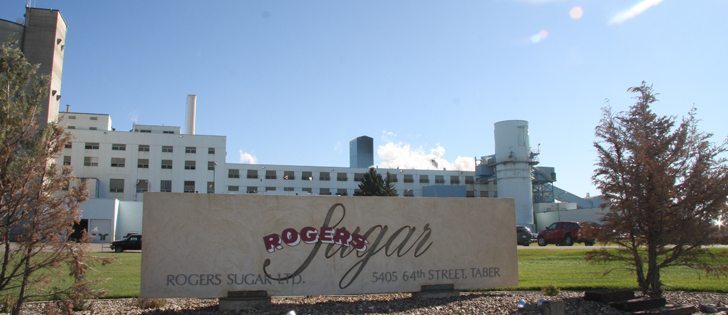Alberta sugar beet growers, Lantic Sugar disagree on pricing system
Alberta sugar beet growers met May 4 to discuss whether to accept a contract offer from their processor or forgo planting a crop this year upon threat of plant closure.
Results of their discussions were not available at press time.
Lantic Sugar, operator of the only beet sugar refining plant in Canada, threatened to close the Taber-based facility unless growers accepted a final contract offer, according to Alberta Sugar Beet Growers executive director Gerald Third.
The previous three-year contract expired at the end of 2014 and Lantic had reportedly offered a one-year deal for 2016.
Read Also

Agriculture ministers commit to enhancing competitiveness
Canadian ag ministers said they want to ensure farmers, ranchers and processors are competitive through ongoing regulatory reform and business risk management programs that work.
“Things have spiraled out of control,” said Third on May 3.
Contract talks between growers and Lantic broke off May 1 when the ASBG rejected Lantic’s latest offer.
Third said the company then began contacting growers directly, urging them to force a vote. However, there is no mechanism in the ASBG regulations for that to occur.
Manon Lacroix, vice-president of finance for Lantic, said May 4 that the company continued to negotiate with the ASBG. She said she could not comment on whether the company is also contacting individual growers.
“We’re still hopeful to reach an agreement with them,” said Lacroix about the ASBG. She declined to provide details of the offer.
Without a 2015 beet crop, she said the Taber factory would process the remaining thick juice in inventory. After that, there would be no reason to continue operating the plant.
“After that we would supply our customers through our two cane refineries. We have one in Montreal and one in Vancouver.”
Third said growers were still pondering their options as of 5 p.m. May 4.
“We are all trying to figure out a way to force a sugar beet deal to avoid closure of this plant,” he said.
Payment for sugar is a key issue in the dispute. Third said Lantic wants to pay based on “extracted” sugar from beets, rather than “extractable” sugar. That means the company would pay growers based on what it processed from harvested beets, rather than on the crop’s complete sugar content.
“Growers want to be paid for the sugar they deliver,” said Third.
Last year, southern Alberta growers planted 22,000 acres of beets with near record sugar content due to good growing conditions.
All sugar beets are contracted through Lantic, as operator of the only processing plant in Canada for domestically produced sugar.
Ordinarily, most sugar beets would already be planted by now, but without a contract no seeding has taken place.
Sugar beets have been grown in southern Alberta since the 1930s and the Taber sugar factory has been operating since 1950.
Generally known as the Rogers sugar plant, it has been owned by Lantic Inc. since Rogers and Lantic merged in 2008.
It has 100 to 120 permanent em-ployees and hires additional staff for seasonal work during beet harvest and processing every fall and winter.
Alberta Sugar Beet Growers is one of seven agricultural marketing boards overseen by the Alberta Agricultural Products Marketing Council.
Third said the council has been contacted regarding the negotiations but there is a question about the extent of its involvement given the provincial election now under way.
He also said Lantic had hired a negotiator to help obtain a deal, a person with long-term ties to the Alberta government.
Given the May 5 Alberta election, any threat of closure of the sugar factory, which is one of Taber’s largest employers, could have been damaging to the Progressive Conservative campaign.
Lacroix said only that Lantic was negotiating with the ASBG and did not confirm or deny that a negotiator was at work.
At the ASBG’s 90th annual meeting in February, president Rob Boras said in his report that growers had returns of more than $50 per tonne in each of the last three contract years.
However, his report and various others presented at the meeting noted dissatisfaction with current contract terms with Lantic.
Contact barb.glen@producer.com
















